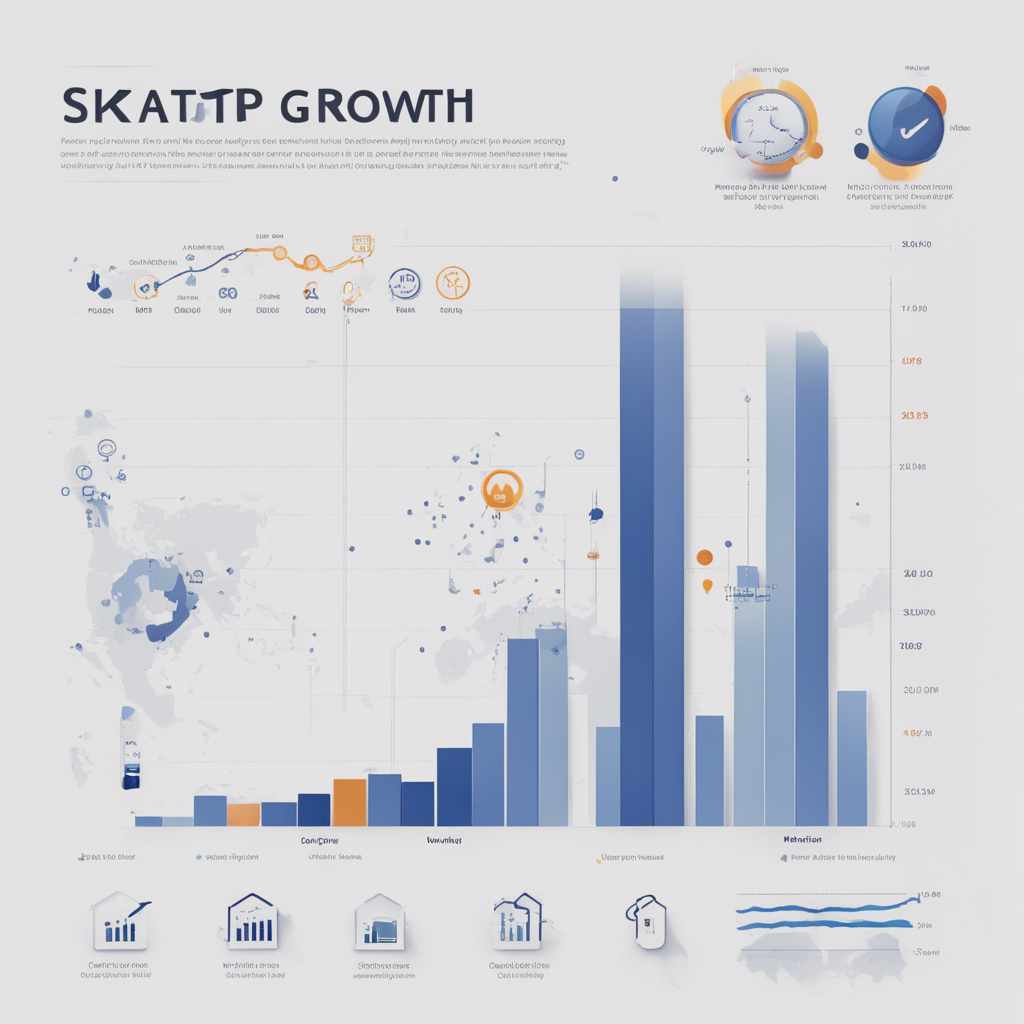
The Economics Behind Cloud Computing
In recent years, cloud computing has become a revolutionary technology that has transformed the way businesses and individuals store, manage, and access their data. This paradigm shift has not only revolutionized the IT industry but has also had a profound impact on the global economy. In this blog post, we will delve into the details of the economics behind cloud computing and explore how its cost-effectiveness, scalability, and flexibility have propelled it to great success.
What is Cloud Computing?
Before we dive into the economics, let’s briefly understand what cloud computing is. Cloud computing refers to the delivery of computing services over the internet, which can include servers, storage, databases, networking, software, analytics, and more. These services are often provided by third-party providers known as cloud service providers (CSPs), who maintain and manage the underlying infrastructure required for seamless service delivery.
The Cost-Effectiveness of Cloud Computing
One of the main reasons why cloud computing has gained popularity is its inherent cost-effectiveness. Traditionally, organizations had to invest substantial capital in building and maintaining their own IT infrastructure. This included purchasing servers, storage devices, networking equipment, and hiring skilled personnel to manage them.
However, with cloud computing, businesses can significantly reduce their capital expenses. Cloud service providers offer their infrastructure as a service, allowing organizations to pay for what they use on a subscription or on-demand basis. This eliminates the need for upfront investments in hardware and software, reducing the financial burden on businesses.
Moreover, the pay-as-you-go model ensures that businesses only pay for the resources they actually use, making it highly cost-effective. This flexibility in pricing allows businesses to scale up or down their resources based on their current needs, optimizing their IT spending.
Scalability and Flexibility
Another economic advantage of cloud computing lies in its scalability and flexibility. Businesses can quickly and easily scale their resources up or down based on demand, without the need for significant upfront investments or long lead times. This agility allows businesses to respond to market fluctuations and changing customer demands more efficiently, enabling them to seize new opportunities and stay ahead of the competition.
Cloud computing also provides businesses with the flexibility to experiment and innovate rapidly. With easy access to a wide range of services and tools, businesses can quickly build, test, and deploy new applications and services. This dramatically reduces the time to market for new products and services, giving businesses a competitive edge.
The Economies of Scale
Cloud service providers, such as Amazon Web Services (AWS), Microsoft Azure, and Google Cloud Platform, benefit from economies of scale. These providers can achieve significant cost savings by spreading the fixed costs of infrastructure, maintenance, and operations across a large customer base. As a result, they can offer their services at more affordable rates to customers.
Moreover, cloud providers can drive innovation and improve efficiencies by leveraging their vast customer base and the economies of scale. This enables them to invest heavily in research and development, continuously improving their services and passing on the benefits to customers.
Enhanced Productivity and Business Agility
Cloud computing not only brings cost savings but also enhances productivity and business agility. By offloading the responsibility of managing IT infrastructure to cloud service providers, businesses can focus on their core competencies, allocate resources more efficiently, and drive innovation. This shift from a capital-intensive IT model to a more service-oriented one frees up resources, time, and energy, allowing businesses to focus on strategic initiatives and growth.
The cloud also empowers remote work and collaboration. With secure and convenient access to data and applications from anywhere in the world, businesses can enable their employees to work remotely, reducing costs associated with physical office spaces and commuting. This flexibility boosts employee morale, attracts top talent, and contributes to a more efficient and cost-effective workforce.
Conclusion
Cloud computing has undoubtedly revolutionized the IT landscape and brought about significant economic benefits. Its cost-effectiveness, scalability, flexibility, and the economies of scale enjoyed by cloud service providers have made it an attractive choice for businesses of all sizes.
As more businesses adopt cloud computing solutions, the economies of scale will continue to grow, driving down costs even further. However, it is important for organizations to carefully evaluate their needs, select the right cloud service provider, and have robust security measures in place to ensure a successful and cost-effective migration to the cloud.
By leveraging the economics behind cloud computing, businesses can streamline their operations, achieve greater cost-efficiency, and position themselves for success in the digital age.
Note: This blog post is purely for informative purposes and does not constitute financial or legal advice. Please consult with professionals before making any financial or IT decisions.
References:
- Amazon Web Services. (n.d.). [Why AWS is the best cloud for cost savings](https://aws.amazon.com/pricing/why-aws/#:~:text=aws%3A%2F%2F%3A%2F%2F%3A%2F%2F%3A%2F%2F%3A%2F%2F%3A%2F%2F%3A%2F%2F%3A%2F%2F%3A%2F%2F%3A%2F%2F%3A%2F%2F%3A%2F%2F%3A%2F%2F%3A%2F%2F%3A%2F%2F%3A%2F%2F%3A%2F%2F%3A%2F%2F%3A%2F%2F%3A%2F%2F%3A%2F%2F%3A%2F%2F%3A%2F%2F%3A%2F%2F%3A%2F%2F%3A%2F%2F%3A%2F%2F%3A%2F%2F%3A%2F%2F%3A%2F%2F%3A%2F%2F%3A%2F%2F%3A%2F%2F%3A%2F%2F%3A%2F%2F%3A%2F%2F%3A%2F%2F%3A%2F%2F%3A%2F%2F%3A%2F%2F%3A%2F%2F%3A%2F%2F%3A%2F%2F%3A%2F%2F%3A%2F%2F%3A%2F%2F%3A%2F%2F%3A%2F%2F%3A%2F%2F%3A%2F%2F%3A%2F%2F%3A%2F%2F%3A%2F%2F%3A%2F%2F%3A%2F%2F%3A%2F%2F%3A%2F%2F%3A%2F%2F%3A%2F%2F%3A%2F%2F%3A%2F%2F%3A%2F%2F%3A%2F%2F%3A%2F%2F%3A%2F%2F%3A%2F%2F%3A%2F%2F%3A%2F%2F%3A%2F%2F%3A%2F%2F%3A%2F%2F%3A%2F%2F%3A%2F%2F%3A%2F%2F%3A%2F%2F%3A%2F%2F%3A%2F%2F%3A%2F%2F%3A%2F%2F%3A%2F%2F%3A%2F%2F%3A%2F%2F%3A%2F%2F%3A%2F%2F%3A%2F%2F%3A%2F%2F%3A%2F%2F%3A%2F%2F%3A%2F%2F%3A%2F%2F%3A%2F%2F%3A%2F%2F%3A%2F%2F%3A%2F%2F%3A%2F%2F%3A%2F%2F%3A%2F%2F%3A%2F%2F%3A%2F%2F%3A%2F%2F%3A%2F%2F%3A%2F%2F%3A%2F%2F%3A%2F%2F%3A%2F%2F%3A%2F%2F%3A%2F%2F%3A%2F%2F%3A%2F%2F%3A%2F%2F%3A%2F%2F%3A%2F%2F%3A%2F%2F%3A%2F%2F%3A%2F%2F%3A%2F%2F%3A%2F%2F%3A%2F%2F%3A%2F%2F%3A%2F%2F%3A%2F%2F%3A%2F%2F%3A%2F%2F%3A%2F%2F%3A%2F%2F%3A%2F%2F%3A%2F%2F%3A%2F%2F%3A%2F%2F%3A%2F%2F%3A%2F%2F%3A%2F%2F%3A%2F%2F%3A%2F%2F%3A%2F%2F%3A%2F%2F%3A%2F%2F%3A%2F%2F%3A%2F%2F%3A%2F%2F%3A%2F%2F%3A%2F%2F%3A%2F%2F%3A%2F%2F%3A%2F%2F%3A%2F%2F%3A%2F%2F%3A%2F%2F%3A%2F%2F%3A%2F%2F%3A%2F%2F%3A%2F%2F%3A%2F%2F%3A%2F%2F%3A%2F%2F%3A%2F%2F%3A%2F%2F%3A%2F%2F%3A%2F%2F%3A%2F%2 F%3A%2F%2F%3A%2F%2F%3A%2F%2F%3A%2F%2F%3A%2F%2F%3A%2F%2F%3A%2F%2F%3A%2F%2F%3A%2F%2F%3A%2F%2F%3A%2F%2F%3A%2F%2F%3A%2F%2F%3A%2F%2F%3A%2F%2F%3A%2F%2F%3A%2F%2F%3A%2F%2F%3A%2F%2F%3A%2F%2F%3A%2F%2F%3A%2F%2F%3A%2F%2F%3A%2F%2F%3A%2F%2F%3A%2F%2F%3A%2F%2F%3A%2F%2F%3A%2F%2F%3A%2F%2F%3A%2F%2F%3A%2F%2F%3A%2F%2F%3A%2F%2F%3A%2F%2F%3A%2F%2F%3A%2F%2F%3A%2F%2F%3A%2F%2F%3A%2F%2F%3A%2F%2F%3A%2F%2F%3A%2F%2F%3A%2F%2F%3A%2F%2F%3A%2F%2F%3A%2F%2F%3A%2F%2F%3A%2F%2F%3A%2F%2F%3A%2F%2F%3A%2F%2F%3A%2F%2F%3A%2F%2F%3A%2F%2F%3A%2F%2F%3A%2F%2F%3A%2F%2F%3A%2F%2F%3A%2F%2F%3A%2F%2F%3A%2F%2F%3A%2F%2F%3A%2F%2F%3A%2F%2F%3A%2F%2F%3A%2F%2F%3A%2F%2F%3A%2F%2F%3A%2F%2F%3A%2F%2F%3A%2F%2F%3A%2F%2F%3A%2F%2F%3A%2F%2F%3A%2F%2F%3A%2F%2F%3A%2F%2F%3A%2F%2F%3A%2F%2F%3A%2F%2F%3A%2F%2F%3A%2F%2F%3A%2F%2F%3A%2F%2F%3A%2F%2F%3A%2F%2F%3A%2F%2F%3A%2F%2F%3A%2F%2F%3A%2F%2F%3A%2F%2F%3A%2F%2F%3A%2F%2F%3A%2F%2F%3A%2F%2F%3A%2F%2F%3A%2F%2F%3A%2F%2F%






